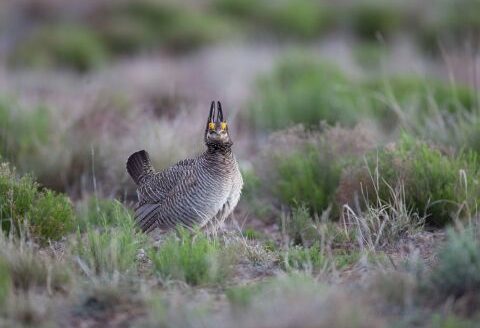Doing things in the name of conservation will ultimately control your food supply. They don’t come right out and tell you this but that is exactly what is happening. On Jan. 27, 2021, President Joe Biden signed Executive Order 14008, which contains the provision we know as “30 x 30.”
In the past 12 months, I have spoken to audiences in 41 states about the dangers of “conservation” under the guise of 30 x 30. I have testified in the state capitols of both Kansas and Nebraska about why we must not go down this path. However, it was Feb. 11 in front of the Judiciary Committee in Lincoln, Nebraska, that I heard a state senator point out something that really helped me understand the bottom line.
Several of us testified in the Nebraska Senate in support of LB 1135, which is a small step toward trying to slow down an over-wielding federal government. In a nutshell, this bill would do a couple of things: First, it would limit a conservation easement to 99 years instead of lasting in perpetuity. Second, it would give more control to the county government for management and less to the feds.
The statement that really did shine a light on what we need to take a hard look at went something like this: “I don’t understand why we always hear that we need to protect the pristine Sandhills and now we have landowners from the Sandhills testifying against this ‘conservation.’”
No, senator, we are not testifying against conservation; we are testifying against the federal government handing out grants and giving authority to non-governmental organizations in the name of conservation just to fill their coffers so they can battle private landowners. To my point, in both state capitols the supporters of the 30 x 30 land grab were organizations that call themselves “conservation groups.”
It is not easy to get factual data on these conservation groups, even those in the United States, but it appears that about 500 organizations exist that claim their purpose is “conservation.” We know that over $5 billion annually go into these NGOs and one stands at the top of the heap. The Nature Conservancy has global dominance with an annual revenue of $1.1 billion. Of that, their 990 for 2020 states that $123 million came directly from government grants.
Another group worth mentioning is the World Wildlife Fund with annual revenue of $500 million, that of which $42 million are direct payments from the government. I am naming only two of the most well known that are a part of the problem but there are many more. Even the very organizations that say they are here to help hunting—Ducks Unlimited, Rocky Mountain Elk, Pheasants Forever and many more—are in this camp at some level. You know what happens locally, with the best of intentions, is that people get involved and go to work generating funds and then send money to a national organization.
At the end of the day, conservation is the key to our future. One hundred percent of the health of the planet depends on the health of the soil, the air and the water. The data in each state clearly shows how much improvement has been made since Lewis and Clark first documented the conditions of water and wildlife as they navigated the country. Those improvements were accomplished by the work of the landowner, and the stewardship of the people who take care of our God-given resources and not the mandates of some cubicle dweller with a university degree and a six-figure salary.
The pristine future of every region of the country rests on the hearts and souls of those of us trying to create a better future for the next generation of caretakers, not some lobbyist asking a member of Congress for another grant.
Editor’s note: The views expressed here are the author’s own and do not represent the views of High Plains Journal. Trent Loos is a sixth generation United States farmer, host of the daily radio show, Loos Tales, and founder of Faces of Agriculture, a non-profit organization putting the human element back into the production of food. Get more information at www.LoosTales.com, or email Trent at [email protected].

